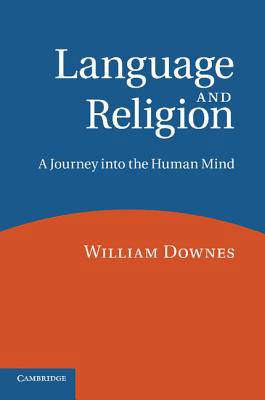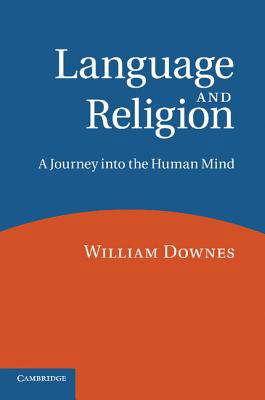
Door een staking bij bpost kan je online bestelling op dit moment iets langer onderweg zijn dan voorzien. Dringend iets nodig? Onze winkels ontvangen jou met open armen!
- Afhalen na 1 uur in een winkel met voorraad
- Gratis thuislevering in België vanaf € 30
- Ruim aanbod met 7 miljoen producten
Door een staking bij bpost kan je online bestelling op dit moment iets langer onderweg zijn dan voorzien. Dringend iets nodig? Onze winkels ontvangen jou met open armen!
- Afhalen na 1 uur in een winkel met voorraad
- Gratis thuislevering in België vanaf € 30
- Ruim aanbod met 7 miljoen producten
Zoeken
€ 67,95
+ 135 punten
Uitvoering
Omschrijving
Language and Religion offers an innovative theory of religion as a class of cultural representations, dependent on language to unify diverse capacities of the human mind. It argues that religion is widespread because it is implicit in the way the mind processes the world, as it determines what we ought to do, practically and morally, to achieve our goals. Focusing on the world religions, the book relates modern cognitive theories of language and communication to culture and its dissemination. It explains basic features of religion such as the supernatural, the normative, abstract and ideal theological concepts such as 'God', and religious feeling. It develops a linguistic theory, based on how utterances are understood, of metaphysical and moral 'mysteries' and their key role in thought and action. It shows how such concepts gain strength in the light of their successful use, and when tempered by criticism, can also have genuine authority.
Specificaties
Betrokkenen
- Auteur(s):
- Uitgeverij:
Inhoud
- Aantal bladzijden:
- 290
- Taal:
- Engels
Eigenschappen
- Productcode (EAN):
- 9780521796736
- Verschijningsdatum:
- 3/01/2013
- Uitvoering:
- Paperback
- Formaat:
- Trade paperback (VS)
- Afmetingen:
- 152 mm x 229 mm
- Gewicht:
- 390 g

Alleen bij Standaard Boekhandel
+ 135 punten op je klantenkaart van Standaard Boekhandel
Beoordelingen
We publiceren alleen reviews die voldoen aan de voorwaarden voor reviews. Bekijk onze voorwaarden voor reviews.











